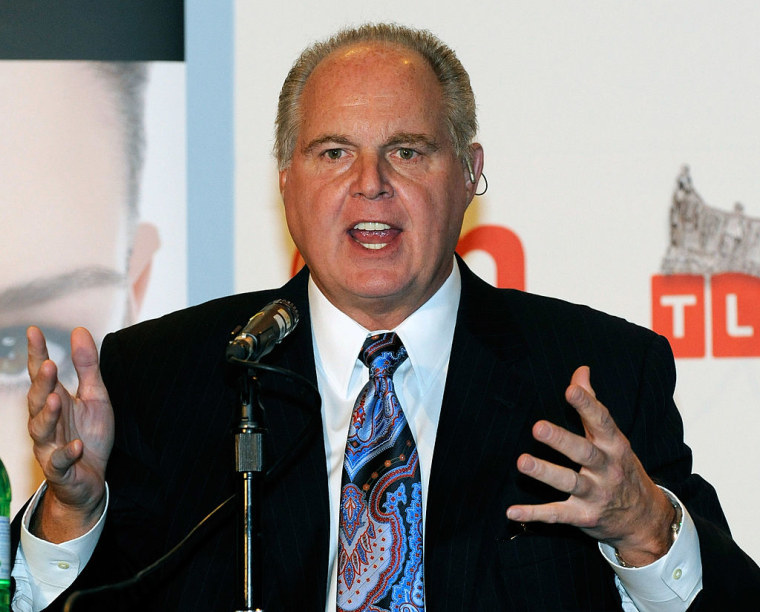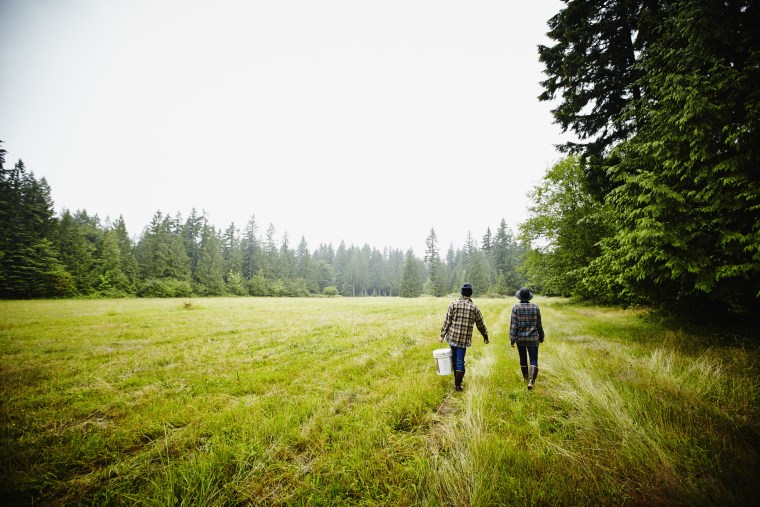Conservative radio host Rush Limbaugh recently remarked on a USDA program called Rural Pride, which aims to improve the lives of LGBTQ people living outside metropolitan areas. His analysis is that the program is an “attack,” orchestrated by the Obama administration, on what Limbaugh describes as the last conservative bastion—rural America. During his broadcast, he read a headline from the Washington Free Beacon, "Feds Holding Summits for Lesbian Farmers,” and observed, “I never knew that lesbians wanted to get behind the horse and the plow and start burrowing."

Limbaugh’s comments occur in the context of an election season, where the right is struggling to find traction on LGBTQ issues. In the same broadcast, Limbaugh lamented attempts to increase trans access to homeless shelters and higher levels of educational attainment among lesbian and gay couples. A recent poll shows not only do most Americans support same-sex marriage (the wedge issue of the 2004 election), the majority of Americans oppose restricting transgender access to public restrooms.
We know that rural queers exist. The largest proportional increase in same-sex couples in the 2000 census occurred in rural areas. It is tempting, therefore, to dismiss Limbaugh’s comments as empty political rhetoric, but they merit serious discussion for the way that they hurt rural Americans, the very folks that he claims to defend.
According to Professor Colin R. Johnson, author of "Just Queer Folks: Gender and Sexuality in Rural America,” Limbaugh’s comments are “moored in no facts or understanding of rural history" and reveal the political manipulation of rural people in general during the election season.
"His only interest in rural America—its welfare, current state and viability—is that rural Americans tend to be more conservative. Their welfare is of little interest to people like Rush Limbaugh.”

Brian Gilley, Professor of Anthropology at Indiana University Bloomington and co-editor of "Queering the Countryside," pointed out that this appropriation is recent.
“My grandfather’s generation—we are from Oklahoma—they were all agrarian socialists. Rural life was about a kind of hustle and also about a kind of community. It didn’t belong to the right in the way the right claims it now. It was about communities surviving, helping each other. The notion that the right owns rurality—guns, animal husbandry, country music. All of that stuff is a new development,” he said.
Rather than defending rural America against queers and the federal government, Johnson insisted, it is “the viability of rural life [that] is genuinely under siege. The largest wave of immigration [in American history] was from rural to urban areas, and we are still wrestling with the implications of that.” Because of increasing agricultural corporatization, amongst other factors, “[There is] decreasing economic viability of forms of labor and production that underpinned a lot of rural communities.” Limbaugh’s comments do nothing to address issues of economic precarity in the lives of many farmers.
With regards to the Rural Pride program, Johnson continued, “The idea that promoting diversity, making [farming] more welcoming is actually a pretty smart thing.” He cited issues of “brain drain” and “youth drain” due to a lack of economic mobility in many rural areas. “It’s not just about acknowledging LGBT farmers, its also about communicating to a generation of rural youth ... of saying to people who are demonstrably leaving, that you can remain. You can remain and not be boxed into a kind of way of life before you have the opportunity to shape it. [Rural Pride] combats [the] notion that rural communities are inherently homophobic, when being homophobic is not an appealing thing.”
Limbaugh’s comment, specifically about “lesbian farmers,” is a sexist erasure of the role of women in rural life, according to Johnson.
“It’s the lesbian part of lesbian farmer—the woman part of farmer—that makes it the definitive joke on the right. From the position of somebody who images rural people to be these ‘independent’ [men], women farmers strike him as absurd," he said. "People who come from farm families know women have been directly involved in farming. The sexism of that statement is profoundly disturbing and an insult to everyone who comes from a farming family.”
Limbaugh is also relying on the stereotype of rural America as homophobic and “backwards.”
“It strikes people as inherently funny,” Johnson explained, “because being gay in any way shape or form, it seems like an oxymoron,” because of the equation of rurality with religiosity and conservatism by people like Limbaugh.
However, as Gilley pointed out, homophobia may be vastly overstated, what matters is the contribution LGBTQ people make to the community: “If two lesbians buy a farm that is dilapidated, and start taking care of the land, and providing jobs—that’s not going to bother anybody.” Deploying a bit of subversive queer rural humor, he added, “Especially if they can bake.”